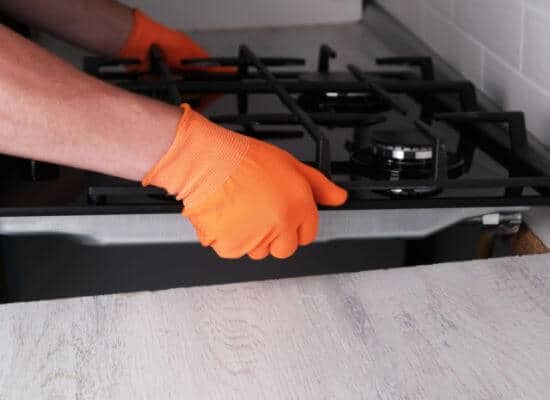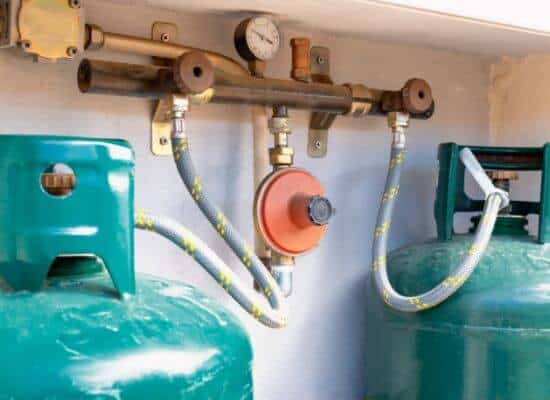Professional Gas Installer Techniques for Seamless and Reliable System Assimilation
Discovering the ins and outs of specialist gas installment, one have to appreciate the accuracy and knowledge needed for smooth system integration. These tools, combined with strict adherence to safety requirements, guarantee comprehensive system testing and optimum performance.
Precision Preparation
In the world of gas installation, accuracy planning is extremely important to making sure both safety and effectiveness. The complexity of gas systems needs precise focus to detail from the beginning.

Coordinating with other specialists, such as designers and designers, is important to incorporating the gas setup flawlessly within the broader building and construction framework. This partnership ensures that all elements of the installment are synchronized, decreasing dangers and boosting overall effectiveness. Accuracy planning in gas installment is not simply a step-by-step step; it is the foundation whereupon risk-free, reliable, and reliable gas systems are developed.
Advanced Tools and Modern Technology
Building upon the foundation of accuracy planning, the assimilation of sophisticated devices and technology raises the criteria of gas setup further. Contemporary gas installers utilize advanced equipment that boosts precision and effectiveness, guaranteeing seamless and reliable system combination. Instruments such as electronic manometers supply precise pressure analyses, important for calibrating gas systems to optimum performance degrees. Additionally, thermal imaging electronic cameras are utilized to identify leaks and guarantee system integrity, promoting aggressive maintenance and reducing the probability of functional interruptions.
The development of clever innovation has better changed gas setups. gas installer. Smart meters and IoT-enabled devices permit real-time monitoring and remote diagnostics, granting installers the capability to anticipate problems prior to they materialize into larger issues. This proactive approach not just enhances system performance yet likewise extends the life expectancy of the installations
Moreover, progressed software remedies assist in careful planning and implementation. CAD software aids in creating intricate gas systems, ensuring spatial effectiveness and compliance with layout requirements. These digital devices, when coupled with skilled workmanship, contribute considerably to the accuracy and integrity of gas installments, embodying the future of the sector where modern technology and competence converge.
Safety Criteria Compliance
Adhering to strenuous security requirements is vital in the area of gas installation, where even small oversights can have significant effects. Conformity with recognized safety and security protocols makes sure the defense of both installers and end-users, mitigating risks such as gas leaks, surges, or carbon monoxide gas poisoning. Professional gas installers need to continue to be cautious, regularly updating their expertise of industry guidelines, including regional, nationwide, and global codes.
The core of security criteria compliance lies in thorough planning and execution. Installers are accountable for carrying out complete risk analyses prior to commencing any job, identifying potential risks and applying control steps. This entails comprehending the homes of various gases, the appropriate usage of materials, and ensuring all parts satisfy certified safety and security criteria.
Additionally, ongoing education and accreditation are important for keeping high requirements. Installers need to get involved in training programs and workshops, focusing on present safety and security technologies and regulative modifications. Such dedication to specialist development not just improves their skillset yet also enhances the sector's reputation for dependability and safety and security.

Reliable System Testing
Effective system testing is vital in guaranteeing the optimum efficiency and safety and security of gas installations. It involves a collection of precise procedures developed to determine informative post prospective flaws and verify that the set up systems operate as intended. Secret facets consist of pressure screening, leakage detection, and functionality assessment. Stress testing validates the system's ability to maintain appropriate pressure without loss, thus guarding versus leaks. Using advanced tools and methods, specialists can precisely measure the system's capability to endure functional demands.

Capability evaluation encompasses the evaluation of all system parts to establish their appropriate installment and operation. Efficient system screening not just ensures safety however also boosts consumer confidence in the integrity of the setup.
Troubleshooting and Maintenance
Troubleshooting and upkeep stand for the foundation look at more info of sustaining gas installations' capability and safety over time. A systematic method to troubleshooting involves understanding system schematics and using diagnostic tools to isolate problems accurately.
Preventive maintenance is equally vital, focusing on routine checks and servicing to extend the life-span of the gas system. Crucial jobs consist of cleaning up burners, analyzing vents for obstructions, and evaluating seals for wear. These practices help avert costly fixings and boost the system's integrity. Keeping detailed records of maintenance tasks is likewise critical, as it enables tracking historical data, which can be important for future troubleshooting sessions.
In addition, staying updated with innovations in modern technology and market regulations ensures that upkeep practices are aligned with contemporary standards. This proactive stance not only ensures conformity but likewise enhances the efficiency of gas setups. Subsequently, a durable troubleshooting and maintenance regimen is vital for professionals committed to supplying smooth and reputable system combination.
Final Thought
The assimilation of gas systems requires accuracy preparation, advanced tools, and strict adherence recommended you read to security criteria. These thorough methods collectively promote seamless system assimilation, highlighting the significance of proficiency and accuracy in maintaining high standards of security and dependability.
Comments on “What Does a Gas Installer Do? A Comprehensive Guide for Homeowners”